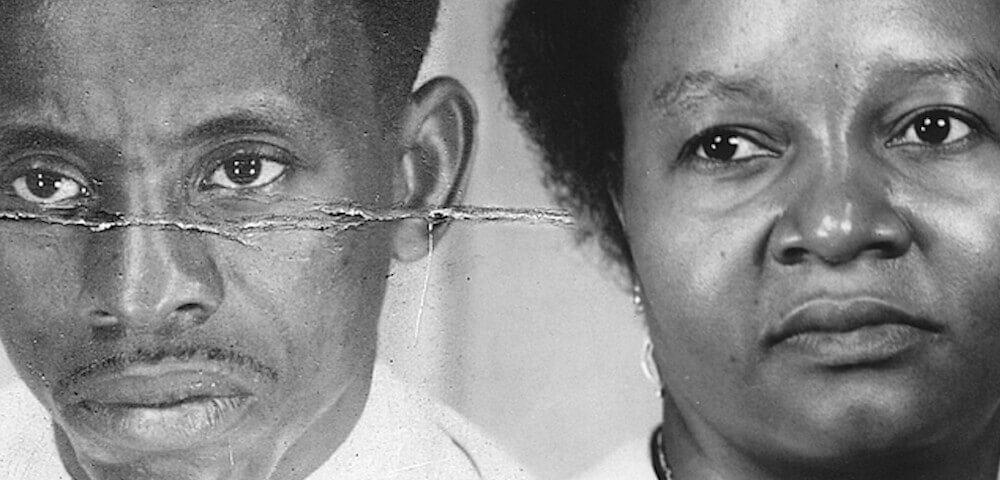
COLETTE AND JUSTIN
dir. Alain Kassanda, 2022
83 min. France/Belgium.
In Lingala and French with English subtitles.
WEDNESDAY, JUNE 12 – 7:30 PM
MONDAY, JUNE 17 – 10 PM
SUNDAY, JUNE 23 – 7:30 PM
GET YOUR TICKETS!
Born in Kinshasa and living in Paris, filmmaker Alain Kassanda embodies the classic immigrant dual identity: in the Democratic Republic of Congo he is seen as French, while in France he is seen as Congolese. Determined to understand the colonial legacy from which he comes, Kassanda convinces his grandparents—Colette and Justin—to sit for a series of interviews. Together, they watch old news footage, remember a visit from the Belgian king, and recall what life was like as part of the nascent Black bourgeoisie who served the colonial administration.
But COLETTE AND JUSTIN is more than a film about family reminiscences. Kassanda uses a wealth of black-and-white archival footage to tell the story, superimposing his own thoughts and his grandparents’ voices over the visuals—in effect, using the colonizers’ images against them. (He generally avoids footage of the horrors, focusing instead on daily life.)
Kassanda, we learn, has two heroes: Justin and inaugural Congolese president Patrice Lumumba, who was murdered by secessionists in collusion with Belgium. In the course of making COLETTE AND JUSTIN, he realizes their lives were intertwined far more deeply than he had realized.
COLETTE AND JUSTIN begins with one man’s search to understand himself and his roots. But ultimately it is an evocative, poetic and thoughtful meditation on the intersection of political and family history, and the multi-generational destructive reach of colonialism.
“How do you depict the impact of colonisation, decolonisation, a civil war and a destructed economy in one film? Director Alain Kassanda decided to portray his grandparents, who were both born in what was then called Zaire, and lived through all of these traumatising times. The result is a deeply personal, sometimes poetic, sometimes harrowing (hi)story of oppression, revolution, betrayal, disillusionment and love.” — Business Doc Europe
“Connects Congolese history to family history… a thoughtful debut.” — The Film Verdict
“Powerfully re-employs Belgian colonial footage and photographs for anti-colonial purposes… explores the complexities and ambiguities of the colonial reality… a crucial recovery of long-suppressed history.” —Documentary Magazine
“The personal scope to the story draws audiences in… Films like this humanize historical events and allow those who lived through them to speak with their own voices. Highly recommended.” —Educational Media Reviews Online
Programmed in collaboration with Several Futures. Special thanks to Graham Carter and Icarus Films.
